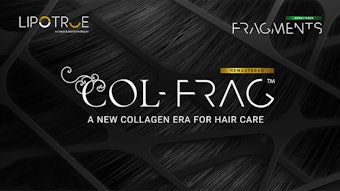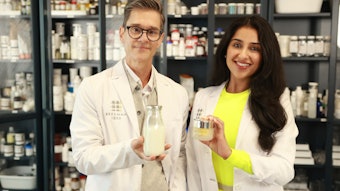Emulsions are thermodynamically unstable systems defined as microscopic dispersions of liquid droplets contained within another liquid, with a diameter ranging from 0.5 mm to 100 mm. Emulsions usually consist of mixtures of an aqueous phase with various oils or waxes. The liquid that is broken up into droplets is termed the internal or disperse phase, whereas liquid surrounding the droplets is known as the external or continuous phase. Both phases are stabilized by a third component, the surfactant.
The two most familiar types of emulsions are readily distinguished as o/w and w/o. The majority of skin care products and a significant percentage of toiletry products are emulsions.4 The basic components of these formulations are emulsifiers, emollients and consistency enhancers. Additional value can be given to these formulations by including active ingredients with specific cosmetic or dermatological effects. Particularly advantageous cosmetic emulsion preparations are obtained when antioxidants are used as active ingredients.
Based on a perceived safety benefit, the worldwide trend toward using natural additives has spurred interest in natural antioxidants found in plants.7 Extract from grapefruit is rich in natural antioxidants8 and provides some cosmetic benefits for the skin such as reduction in skin melanin, increase in skin moisture and antiwrinkle effects.7 The best natural antioxidants present in grapefruit extract are ascorbic acid or vitamin C,9 flavonoids,10 beta carotene and lycopene.11 Thus, the current work aimed to formulate a stable w/o emulsion containing grapefruit extract by entrapping the extract in the inner aqueous phase. Tests were performed on sample formulations to measure their effects on different physiological characteristics such as melanin, erythema, moisture, sebum, pH and TEWL.

![Lead Image2 [nas] 800x450px](https://img.cosmeticsandtoiletries.com/files/base/allured/all/image/2024/10/Lead_image2__NAS__800x450px.6704042d635b8.png?auto=format%2Ccompress&fit=crop&h=191&q=70&w=340)








